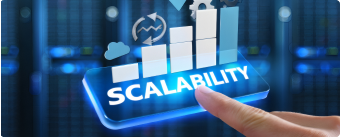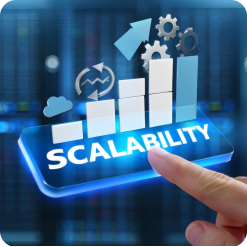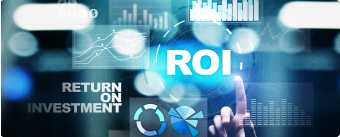How AI Due Diligence is Transforming Private Equity Firms

AI is revolutionizing due diligence in private equity by automating manual tasks and uncovering insights in real-time. With AI-driven tools like Kairos by Brownloop, firms can streamline data collection, risk assessment, and collaboration, speeding up the deal process by up to 80%. This blog explores how AI enhances due diligence, reduces risks, and improves decision-making, offering a competitive edge in today’s fast-paced market.

Published on:
How AI Due Diligence is Transforming Private Equity Firms
AI is revolutionizing due diligence in private equity by automating manual tasks and uncovering insights in real-time. With AI-driven tools like Kairos by Brownloop, firms can streamline data collection, risk assessment, and collaboration, speeding up the deal process by up to 80%. This blog explores how AI enhances due diligence, reduces risks, and improves decision-making, offering a competitive edge in today’s fast-paced market.
- Introduction
- Understanding AI Due Diligence
- How AI is Being Integrated into the Due Diligence Process
- Key Benefits of AI in Due Diligence
- AI Use Cases Tailored for Private Equity Deal Teams
- Overcoming Common Challenges in AI-Powered Due Diligence
- The Future of Due Diligence: Trends and Innovations
- Conclusion
- Frequently Asked Questions
Introduction
AI due diligence is no longer a theoretical advantage; it is rapidly becoming a strategic necessity in private equity. Amid intense competition, compressed deal timelines, and exponential data growth, firms are rethinking traditional diligence approaches. Manual private equity due diligence processes, which once spanned months, are giving way to intelligent automation capable of surfacing insights in real-time and reducing risk exposure in due diligence for private equity.
Private equity professionals are facing a new reality: winning deals depends not only on capital or connections, but on operational precision. In today’s M&A environment, where a single missed risk can distort Multiple on Invested Capital (MOIC) or jeopardize the Internal Rate of Return (IRR), traditional diligence methods no longer suffice. Artificial intelligence for M&A due diligence tools provides a way to dissect financial, legal, and operational complexities more quickly, accurately, and with fewer blind spots.
Platforms like Kairos by Brownloop are redefining how PE firms collect, interpret, and act on information. By orchestrating multi-agent diligence flows from Confidential Information Memorandum (CIM) parsing and risk flagging to investment memo generation, AI enables firms to operate at the speed of opportunity.
Ready to Transform Your Deal Team’s Performance?
Explore how Brownloop
can help your firm lead the next era of smarter, faster,
and more
transparent private equity.
Understanding AI Due Diligence
What is AI Due Diligence?
AI in due diligence refers to the application of artificial intelligence, machine learning, and automation to enhance and accelerate the deal evaluation process. It replaces error-prone manual workflows with intelligent systems that collect, classify, and analyze data across multiple diligence streams.
Rather than waiting for final data room access, AI models can scan company websites, hiring trends, legal filings, or social sentiment to preemptively assess deal viability. Once data rooms open, AI agents extract terms, analyze financials, and benchmark targets against market norms, compressing weeks of work into days.
AI due diligence spans across:
- Financial diligence: Identifying anomalies in revenue, margin, or cash flow patterns.
- Operational diligence: Reviewing vendor contracts, system dependencies, and workforce stability is a core part of private equity technology due diligence, where AI excels in identifying hidden risks and dependencies.
- Legal diligence: Spotting litigation history, change-of-control clauses, or IP exposure.
- Commercial diligence: Benchmarking market share, NPS, and competitive dynamics.
The result is a continuous, multi-dimensional view of risk, value, and opportunity tailored to each deal thesis.
The Adoption of AI in Due Diligence
While AI in private equity is still in the early innings, momentum is accelerating as firms realize the structural advantages it brings to deal evaluation and execution. A 2023 study by Deloitte Insights found that fewer than 10% of private equity funds had implemented AI in their core functions by the end of the first half of 2023. However, projections suggest that within the next five to seven years, up to 25% of private equity firms are expected to adopt AI for portfolio valuations and other complex tasks.1 This gap reflects a growing strategic divide: firms investing in AI gain structural advantages, while others risk falling behind.
For leading firms like Thoma Bravo, Blackstone, and Vista Equity Partners, AI is already embedded in how they evaluate targets, monitor portfolio KPIs (Key Performance Indicators), and prepare for exit. Internal tech teams and AI vendors co-develop models that score deals, track integration risk, and flag compliance issues.
Kairos by Brownloop enables mid-market firms to access similar capabilities without building bespoke infrastructure. Its domain-trained AI agents work out-of-the-box to support sourcing, diligence, integration, and Investor Relations (IR).
- Deloitte Insights. (2023). AI in Private Equity: Adoption and Future Outlook.
How AI is Being Integrated into the Due Diligence Process
AI-Powered Data Collection and Processing
Due diligence often begins with a deluge of documents: CIMs, Excel models, supplier contracts, insurance binders, HR data, and more. Manually extracting relevant terms, metrics, or trends from this information is a massive bottleneck.
AI transforms this process. Using Optical Character Recognition (OCR) and Natural Language Processing (NLP), platforms like Kairos scan thousands of documents in minutes, extracting:
- Financial tables from PDFs
- Key clauses in supply agreements (e.g., auto-renewals, penalties)
- Regulatory discrepancies in compliance documents
- Customer concentration from revenue breakdowns
Example: A diligence team at a mid-market fund receives 400 files in a data room. Rather than manually reviewing each, the team uses Kairos to summarize documents, tag them by category (HR, financial, legal), and prioritize those with identified issues, reducing initial review time by over 70%.
Automated Risk Assessment and Scoring
AI risk assessment models assess every aspect of a target: financial volatility, legal exposure, compliance gaps, tech resilience, and people risk. AI builds customized diligence scorecards based on the firm’s thesis and sector focus.
These automated due diligence tools go beyond basic ratios. For example, they may compare AR aging trends against peer benchmarks, flag irregular expense line items, or detect unusual churn in high-margin accounts.
By combining structured financials with unstructured content (emails, pitch decks, news mentions), AI systems uncover non-obvious threats like key person risk or hidden off-balance sheet liabilities.
Real-Time Collaboration and Data Sharing
Diligence is a team sport. Deal partners, analysts, operating partners, legal counsel, and finance teams must all weigh in, often from different systems and geographies.
AI-enabled platforms centralize data and workflows. Comments, flags, and decisions are stored alongside documents. This eliminates confusion, accelerates feedback loops, and ensures everyone is operating with the same version of the truth.
Kairos, for instance, allows value creation teams to tag risks in an operational review, while finance can simultaneously assess tax structures. No more going back and forth between Excel, email, and Virtual Data Rooms (VDRs) for private equity platforms. AI centralizes everything for seamless collaboration and version control.
Customizable Dashboards and Reporting
Each stakeholder in a deal wants different answers. A partner may want to know if the deal is accretive to the platform, while a CFO may seek to validate whether the working capital assumptions are realistic. Meanwhile, an IR director might ask how the deal will impact Distributions to Paid-In Capital (DPI).
Role-specific dashboards provide targeted visibility:
- Deal dashboards: pipeline stage, red flags, thesis alignment.
- Portfolio views: MOIC, IRR, deployment velocity, value at risk.
- Investment Committee (IC) views: diligence scorecard summary, pricing scenarios, exit modeling.
- Limited Partner (LP) views: investment rationale, scenario impact, key risks.
With AI-generated reports, these insights update in real time, reflecting new data as it arrives.
Key Benefits of AI in Due Diligence

Enhanced Speed and Efficiency
The most significant benefit is that AI reduces diligence timelines by 60% to 80%. Tasks that once took teams weeks, such as cross-referencing agreements, building financial bridges, and preparing IC materials, can now be completed in just a few hours.
In auctions, this speed matters. The firm that gets to conviction faster, without compromising quality, wins. AI allows lean teams to evaluate more deals, chase more off-market leads, and reduce IC cycle time, making private equity automation a competitive advantage rather than a back-office improvement.



Improved Accuracy and Risk Mitigation
Even the best analysts miss details. A misplaced decimal, an overlooked clause, a misclassified expense can destroy value. AI enhances risk management by standardizing data, enforcing rules, and flagging anomalies that could otherwise go unnoticed.
Examples :
- Comparing customer contract terms across 10 PortCos
- Identifying vendor concentration risk in AP reports
- Detecting related-party transactions in footnotes

Scalability
As Assets Under Management (AUM) grows, so does deal volume. Without AI, firms must choose between hiring aggressively or dropping diligence standards. AI solves this by acting as a force multiplier, since the same team can now underwrite twice the number of deals with no loss in quality.
This is especially valuable for firms pursuing roll-up strategies or operating across multiple sectors.



Cost Savings and Higher ROI
While AI platforms involve upfront cost, the ROI is compelling. Firms save on consultant fees, avoid failed investments, and reduce hold-period delays. AI also frees up senior talent for higher-value work: strategy, negotiation, and integration.
Increased win rates, better valuations, and fewer post-close surprises all compound returns.
AI Use Cases Tailored for Private Equity Deal Teams
AI for Deal Sourcing and Early-Stage Screening
Before diligence begins, deal sourcing teams must sift through hundreds of potential targets. AI deal sourcing helps triage the noise by analyzing websites, job postings, filings, and news to surface potential opportunities aligned with the investment thesis.
Use Case: A sourcing lead at an industrials-focused PE fund uses Kairos to scan for companies expanding their field sales teams (a proxy for new market expansion). The system flags 27 firms not yet on the radar, and three convert to NDAs.
Post-Due Diligence and Integration Planning
Diligence does not end at close. AI tracks whether the underwritten value-creation plan is delivering. Did margin expansion happen? Were procurement synergies realized? Are we hitting revenue milestones?
Integration agents inside Kairos log initiatives, enable portfolio monitoring, track KPIs, and identify deviations from the plan. This closes the loop from investment thesis to value capture.
Example: After acquiring a SaaS company, a portfolio ops lead uses Kairos to track pricing changes by cohort and Annual Recurring Revenue (ARR) churn post-integration, giving the board real-time insight into synergy realization.
Overcoming Common Challenges in AI-Powered Due Diligence
Data Quality and Integration Issues
Many firms suffer from fragmented systems, CRMs, Excel models, and fund admin portals. This creates delays, errors, and duplication. Kairos addresses this with pre-built connectors and a harmonized data schema.
It acts as a translation layer, making data from disparate systems usable and comparable without requiring data scientists to manually integrate them.
Change Management and Building an AI-Ready Culture
Technology fails without adoption. PE firms must train teams to use AI fluently, not just as a tool, but as part of their thinking. Change programs should include:
- Partner champions to lead by example
- Pilot use cases with measurable ROI
- Clear messaging: “AI empowers, not replaces”
- Embedded ops roles to manage platforms
Ensuring Compliance and Data Security
- Role-based access controls
- Secure VPC deployment
- Encryption at rest and in transit
- Audit logging and Service Organization Control Type 2 (SOC 2) compliance
The Future of Due Diligence: Trends and Innovations
Continuous Learning and Adaptive AI Models
- Learn from past deals to update benchmarks.
- Adjust risk scoring based on market changes.
- Offer contextual suggestions for missing data or assumptions.
- Personalize recommendations for each user role.
Shaping the Next Generation of Private Equity Investment
In the next five years, AI will link sourcing, diligence, value creation, and exit in a continuous feedback loop. Every data point, whether from a term sheet or a board deck, will refine how the firm underwrites future deals.
AI will not replace human judgment. But it will change where human time is spent: less on document wrangling, more on strategy, insight, and decision-making.
Conclusion
Due diligence for private equity is evolving rapidly, and AI has become the backbone of a smarter, faster, and more confident investment process. Private equity firms that embed AI into their deal workflows can win more deals, reduce surprises, and outperform peers.
Platforms like Kairos by Brownloop bring this capability within reach, combining PE-specific intelligence, automated document parsing, scoring, and reporting into one seamless system.
As the industry evolves, the question is not whether to adopt AI, but how quickly. The firms that act now will define the next generation of private equity leadership.
Frequently Asked Questions
 How fast can AI accelerate the deal vetting process?
How fast can AI accelerate the deal vetting process?
AI can cut diligence cycles from 30–60 days to as little as 2–5 days by automating data extraction, risk scoring, and IC prep.
 Is AI replacing traditional due diligence methods?
Is AI replacing traditional due diligence methods?
 Are there risks to using AI in due diligence?
Are there risks to using AI in due diligence?
Yes, risks include overreliance on models, data bias, and integration gaps. These are mitigated with human oversight, phased rollout, and secure platforms.
 What are the three types of due diligence?
What are the three types of due diligence?
- Financial Due Diligence (FDD) – Cash flow, margin, accounting integrity
- Operational Due Diligence (ODD) – Systems, contracts, HR, supply chain
- Commercial Due Diligence (CDD) – Market size, competition, customer dynamics
AI enhances each type through speed, accuracy, and richer data integration.
Ready to Transform Your Deal Team’s Performance?
Explore how Brownloop
can help your firm lead the next era of smarter, faster,
and more
transparent private equity.





